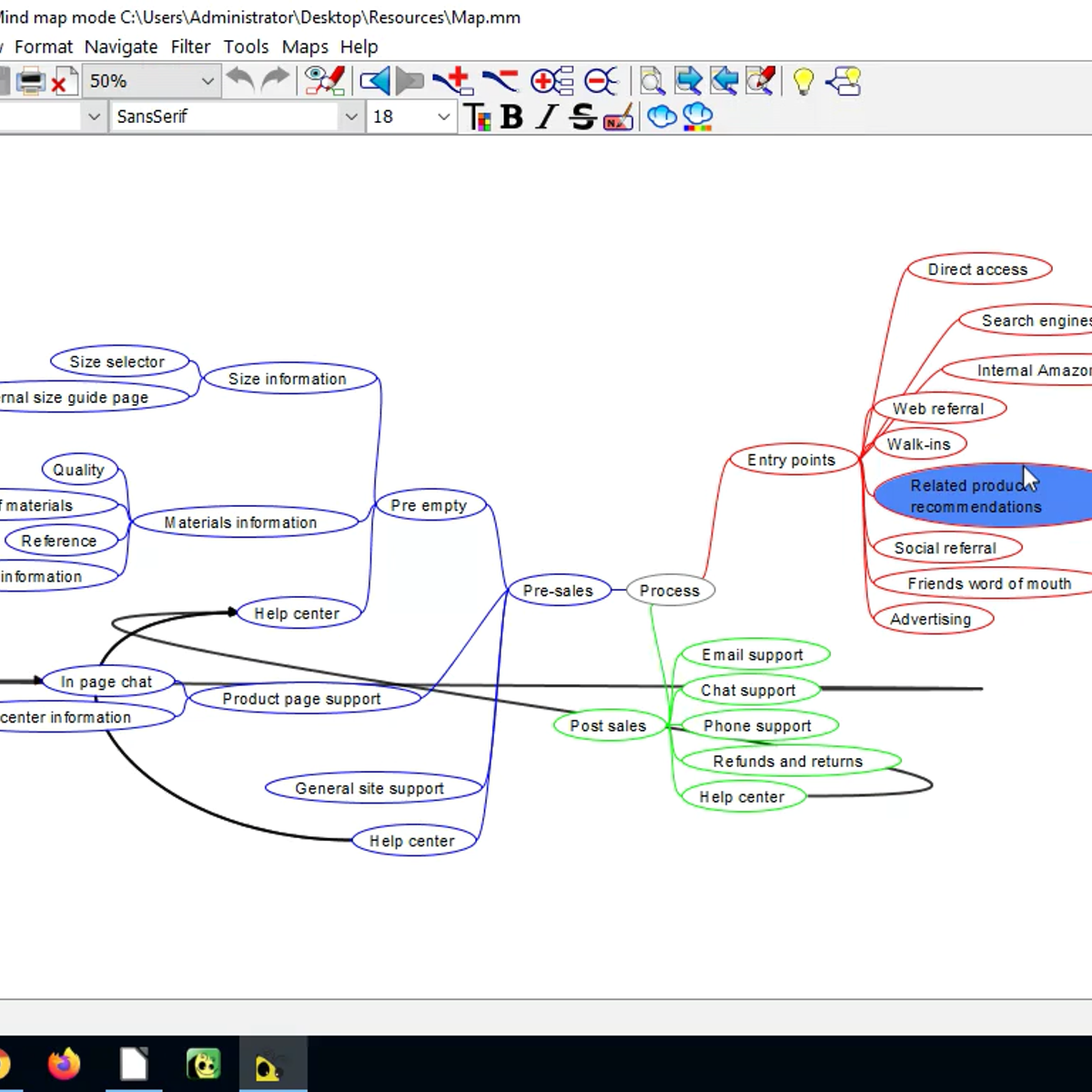Customer Service Manager
Exploring a Career as a Customer Service Manager
A Customer Service Manager holds a crucial position within any organization focused on its clientele. At its core, this role involves leading a team dedicated to ensuring customers have positive interactions and experiences with the company. They are responsible for overseeing the customer service department, setting performance standards, and implementing strategies that align with the company's goals for customer satisfaction and loyalty.
Working as a Customer Service Manager can be highly engaging. You'll find yourself at the intersection of strategy, technology, and human interaction. Developing effective customer service policies, leveraging technology like Customer Relationship Management (CRM) systems, and coaching a team to excel offers a dynamic work environment. The opportunity to directly impact customer happiness and contribute to the company's success makes this career path particularly rewarding for many.
Key Responsibilities of a Customer Service Manager
Understanding the scope of a Customer Service Manager's duties is vital for anyone considering this career. These professionals wear many hats, balancing team leadership with strategic planning and operational oversight. Their primary goal is ensuring customer expectations are met or exceeded, contributing significantly to the company's reputation and bottom line.
Team Leadership and Performance Monitoring
A significant part of the role involves leading and managing a team of customer service representatives. This includes hiring, training, coaching, and mentoring staff to equip them with the necessary skills and knowledge. Customer Service Managers set clear performance goals and expectations for their teams.
Monitoring team performance is crucial. Managers track key performance indicators (KPIs) such as response times, resolution rates, and customer satisfaction (CSAT) scores. Analyzing this data helps identify areas for improvement and ensures the team meets its objectives.
Fostering a positive and supportive work environment is also key. Motivating the team, managing appraisals, and ensuring staff well-being contribute to a high-performing customer service department. Effective leadership inspires the team to deliver exceptional service consistently.
Policy Implementation for Customer Satisfaction
Developing and implementing customer service policies and procedures is a core responsibility. These guidelines ensure consistency in service delivery and provide representatives with a framework for handling various customer interactions. Policies need to be regularly reviewed and updated to reflect changing customer needs and business requirements.
The ultimate aim of these policies is to enhance customer satisfaction. This involves setting standards for interaction quality, response times, and problem resolution. By establishing clear protocols, managers ensure that customers receive efficient and effective support.
Customer Service Managers also handle escalated customer issues that representatives couldn't resolve. They step in to manage complex situations, aiming for resolutions that satisfy the customer while aligning with company capabilities. Their ability to navigate difficult conversations is critical.
These courses can provide foundational knowledge in customer service principles and management techniques.
For further reading on service excellence and management, consider these books.
Cross-Departmental Collaboration Strategies
Customer Service Managers rarely work in isolation. They frequently collaborate with other departments, such as sales, marketing, product development, and logistics. This collaboration ensures a unified approach to the customer experience across all touchpoints.
Effective communication with other teams is essential. Managers share customer feedback and insights gathered by their team, helping other departments understand customer pain points and preferences. This information can inform product improvements, marketing campaigns, and sales strategies.
Working across departments helps streamline processes and resolve issues that span multiple areas of the business. For example, collaborating with logistics can improve delivery tracking information, while working with product teams can address recurring technical problems reported by customers.
Data-Driven Decision-Making Processes
Modern customer service relies heavily on data. Managers use various tools and techniques to collect and analyze customer feedback, interaction data, and performance metrics. This data provides valuable insights into customer behavior, satisfaction levels, and service efficiency.
Analyzing data helps identify trends, pinpoint recurring issues, and measure the effectiveness of current strategies. For example, tracking call resolution times might reveal bottlenecks in the support process, while analyzing CSAT scores can highlight areas needing improvement.
These insights inform decision-making. Managers use data to justify changes to policies, advocate for new tools or training programs, and report on the department's performance to senior leadership. A data-driven approach ensures that improvements are targeted and impactful.
These courses introduce data visualization and analysis techniques useful in this role.
Essential Skills for Customer Service Managers
Success as a Customer Service Manager hinges on a diverse set of skills. These range from interpersonal abilities essential for dealing with people to technical competencies needed to manage modern service operations. Developing these skills is crucial for anyone aiming to excel in this field.
Conflict Resolution Techniques
Handling dissatisfied or upset customers is a frequent occurrence in customer service. Managers need strong conflict resolution skills to de-escalate tense situations and find mutually agreeable solutions. This involves active listening, empathy, and patience.
Managers often train their teams in conflict resolution as well. They must be able to coach representatives on how to handle difficult interactions professionally and effectively. Knowing when to step in and manage an escalated issue directly is also important.
Effective conflict resolution turns potentially negative experiences into opportunities to build customer loyalty. When customers feel heard and their problems are addressed fairly, they are more likely to remain customers.
These courses offer practical strategies for managing conflict in various settings.
CRM Software Proficiency Trends
Customer Relationship Management (CRM) software is a cornerstone of modern customer service operations. Managers need proficiency in using CRM systems to track customer interactions, manage team workflows, and analyze data. Familiarity with popular platforms like Salesforce or HubSpot is often expected.
The CRM landscape is constantly evolving, with trends like AI integration becoming more prevalent. Managers need to stay updated on these advancements and understand how new features can improve their team's efficiency and effectiveness. For example, AI-powered chatbots within CRM systems can handle routine inquiries, freeing up human agents for complex issues.
Selecting, implementing, and managing CRM tools often falls under the manager's purview. They need to evaluate different software options, oversee the integration process, and ensure the team is properly trained to use the system effectively. Proficiency with specific tools like Amazon Connect can be advantageous.
These courses provide introductions to CRM concepts and specific tools.
Multilingual Communication Advantages
In today's globalized marketplace, the ability to communicate in multiple languages can be a significant asset for a Customer Service Manager and their team. Catering to customers in their native language enhances their experience and builds stronger relationships.
Managers overseeing diverse customer bases may need to hire multilingual staff or utilize translation tools and services. Understanding the cultural nuances associated with different languages is also important for effective communication and avoiding misunderstandings.
Even if not fluent themselves, managers who appreciate the value of multilingual support can strategically build teams and implement processes that cater to a wider audience. This can be a key differentiator for businesses operating internationally or serving diverse domestic populations.
Developing language skills, particularly in Business English or other locally relevant languages, can be beneficial.
Emotional Intelligence Requirements
Emotional intelligence (EI) is arguably one of the most critical skills for a Customer Service Manager. It involves understanding and managing one's own emotions, as well as recognizing and influencing the emotions of others – both customers and team members.
High EI enables managers to handle stressful situations calmly, empathize genuinely with frustrated customers, and build rapport effectively. It also helps in leading and motivating the team, understanding their needs, and fostering a positive work environment.
Developing EI involves self-awareness, self-regulation, motivation, empathy, and social skills. Managers with strong EI can navigate complex interpersonal dynamics, resolve conflicts more effectively, and ultimately create better experiences for everyone involved.
These courses focus on developing emotional intelligence and related soft skills.
Career Progression in Customer Service Management
The path to becoming a Customer Service Manager often starts with hands-on experience in customer-facing roles. Understanding the typical trajectory, promotion criteria, and potential future opportunities can help aspiring managers plan their careers effectively.
Typical Entry-Level Roles
Many Customer Service Managers begin their careers in entry-level positions like Customer Service Representative, Support Specialist, or Call Center Agent. These roles provide foundational experience in handling customer inquiries, resolving issues, and understanding customer needs firsthand.
Working in these initial roles helps develop core skills such as communication, problem-solving, and patience. It also provides exposure to the company's products, services, and internal processes. Excelling in these positions is often the first step toward advancement.
Some individuals might also enter through related fields like sales, marketing, or operations, bringing transferable skills. Regardless of the starting point, demonstrating a strong customer focus and a knack for handling interactions effectively is key.
These courses introduce skills relevant for entry-level and support roles.
Promotion Timelines and Performance Metrics
Moving from an entry-level role to a supervisory or team lead position typically requires demonstrating strong performance and leadership potential. This might involve consistently exceeding performance targets, handling complex issues adeptly, and showing initiative in helping colleagues.
Progression to a Customer Service Manager role often requires several years of experience, including time spent in a supervisory capacity. Performance is usually measured by team KPIs (like CSAT, resolution time, first-contact resolution) and the manager's ability to lead, train, and motivate their team effectively.
Promotion timelines vary significantly based on the individual, the company size and structure, and industry norms. Consistently demonstrating strong results, leadership qualities, and a strategic mindset are crucial factors for advancement.
Transition Opportunities to Executive Positions
Experienced Customer Service Managers can progress to more senior roles within the customer service hierarchy. This might include becoming a Senior Customer Service Manager, Director of Customer Service, or even Vice President (VP) of Customer Experience or Chief Experience Officer (CXO) in larger organizations.
These higher-level roles involve greater strategic responsibility, overseeing larger teams or multiple locations, setting departmental direction, and managing significant budgets. They focus on the overall customer journey and integrating service strategy with broader business goals.
Skills gained as a Customer Service Manager are also transferable to other executive roles. Strong leadership, strategic thinking, operational management, and communication skills can open doors to positions in operations management, general management, or business development.
Industry-Specific Progression Variations
Career paths can differ depending on the industry. For example, in retail, a manager might progress from a store-level service manager to a regional or national role. In tech, progression might involve managing support for specific product lines or moving into customer success management.
The hospitality industry offers paths from front desk or guest relations management to hotel or regional service director roles. Financial services might see progression towards managing client relations teams or moving into compliance or operational risk roles related to customer interaction.
Understanding the specific structure and opportunities within your chosen industry is important. Some sectors may place more emphasis on specific technical knowledge or certifications alongside general management skills.
These courses offer insights into management within specific industries.
Formal Education Pathways
While practical experience is invaluable, formal education can provide a strong foundation and accelerate career growth in customer service management. Various academic routes can equip individuals with the necessary knowledge and credentials.
Relevant Bachelor's Degrees
A bachelor's degree is often preferred, though not always required, for Customer Service Manager positions. Degrees in fields like Business Administration, Management, Communications, or Marketing are particularly relevant. These programs typically cover essential topics such as organizational behavior, leadership, communication strategies, and business operations.
Some universities may offer specific courses or concentrations in customer service, hospitality, or retail management. Coursework often includes case studies, group projects, and presentations, helping students develop practical skills alongside theoretical knowledge.
Even degrees in fields like Psychology or Sociology can be beneficial, as they provide insights into human behavior, communication dynamics, and interpersonal relations – all crucial aspects of managing customer interactions and leading teams.
These courses align with typical undergraduate business and management curricula.
This book provides a broad overview of management principles.
Certification Programs in Customer Experience Management
Professional certifications can enhance credentials and demonstrate specialized knowledge. Several organizations offer certifications focused on customer service, customer experience (CX), or contact center management. Examples include the Certified Customer Experience Professional (CCXP).
These programs often cover topics like customer journey mapping, voice of the customer (VoC) programs, CX strategy, metrics, and organizational adoption. Earning a certification typically requires meeting certain experience and education prerequisites and passing an exam.
Certifications can be particularly valuable for individuals transitioning from other fields or seeking to validate their expertise. They signal a commitment to the profession and staying current with industry best practices.
MBA Programs with Customer Service Specializations
For those aiming for senior leadership roles, a Master of Business Administration (MBA) degree can be a significant asset. While not always focused specifically on customer service, MBA programs develop advanced skills in strategy, finance, leadership, and operations – all relevant to managing a customer service department effectively.
Some MBA programs offer specializations or concentrations in areas like Marketing, Operations Management, or even specific industries (like Hospitality) that have strong links to customer service. These allow for deeper dives into relevant topics.
An MBA can open doors to higher-level management positions and potentially accelerate career progression. However, it represents a significant investment in time and money, so carefully consider your career goals before pursuing this path.
Research Opportunities in Service Innovation
For those interested in the academic or cutting-edge aspects of customer service, research opportunities exist within universities and specialized institutes. Research often focuses on service innovation, customer behavior modeling, the impact of technology on service delivery, and developing new metrics for measuring service quality.
Engaging in research, perhaps through graduate studies (Master's or PhD), can lead to careers in academia, consulting, or specialized roles within large corporations focused on service strategy and innovation.
Understanding current research trends can also benefit practicing managers by keeping them informed about emerging best practices and future directions in the field. Topics like the application of AI in service or behavioral economics approaches to customer interaction are active areas of research.
This book explores innovation challenges relevant to service industries.
Online Learning and Skill Development
In today's rapidly evolving landscape, continuous learning is essential. Online courses offer flexible and accessible ways for aspiring and current Customer Service Managers to acquire new skills, deepen their knowledge, and stay competitive. Platforms like OpenCourser aggregate thousands of courses, making it easier to find relevant learning opportunities.
Self-Paced Leadership Training Modules
Leadership is fundamental to the Customer Service Manager role. Numerous online courses offer self-paced modules focused on developing key leadership competencies. These might cover topics like team motivation, delegation, performance management, communication strategies, and leading through change.
The flexibility of self-paced learning allows individuals to study around their work schedules. Learners can focus on specific areas where they need development, building a personalized learning path. Many courses offer practical exercises and case studies to apply concepts.
Completing leadership modules can bolster a resume and provide tangible skills applicable immediately in the workplace. Finding courses on platforms aggregated by OpenCourser allows comparison of syllabi and reviews to select the best fit.
These courses offer self-paced learning on leadership and management skills.
These books offer insights into leadership and personal effectiveness.
Simulation-Based Customer Interaction Courses
Some online platforms offer courses that use simulations to practice handling customer interactions. These simulations can provide a safe environment to practice techniques for dealing with difficult customers, resolving complaints, or handling specific service scenarios.
Simulation-based learning can be particularly effective for developing skills like empathy, active listening, and conflict resolution. Receiving feedback within the simulation helps learners understand the impact of their responses and refine their approach.
While not a perfect substitute for real-world experience, simulations offer valuable practice, especially for those new to customer-facing roles or looking to improve their handling of challenging situations.
Digital Badging Systems for Skill Verification
Many online course providers and professional organizations offer digital badges or certificates upon completion of courses or programs. These can serve as verifiable credentials to showcase acquired skills and knowledge on resumes or professional networking profiles like LinkedIn.
Digital badges can cover a wide range of skills, from proficiency in specific software (like CRM systems) to competencies in areas like conflict resolution or data analysis. They provide a standardized way to signal expertise to potential employers.
Building a portfolio of relevant digital badges can demonstrate a commitment to continuous learning and professional development. OpenCourser's Learner's Guide offers tips on how to effectively leverage certificates and badges in your career journey.
Hybrid Learning Models Combining Theory/Practice
Hybrid learning models, which blend online theoretical learning with practical application (sometimes through projects, workshops, or even in-person components), offer a comprehensive approach. These models aim to bridge the gap between knowing concepts and being able to apply them effectively.
Online components might include video lectures, readings, and quizzes covering foundational theories and strategies. Practical components could involve working on real-world case studies, participating in group projects, or receiving mentorship.
This blended approach caters to different learning styles and provides a more rounded educational experience. It ensures learners not only understand the 'what' and 'why' but also develop the 'how-to' skills needed for the job.
Industry Trends Impacting Customer Service Managers
The field of customer service is dynamic, shaped by technological advancements, shifting customer expectations, and global economic factors. Staying aware of these trends is crucial for Customer Service Managers to adapt their strategies and lead their teams effectively.
AI Integration in Customer Service Workflows
Artificial Intelligence (AI) is significantly transforming customer service. AI-powered tools like chatbots and virtual assistants are increasingly handling routine inquiries, providing 24/7 support, and freeing up human agents for more complex issues. AI also enhances predictive analytics, helping anticipate customer needs.
Managers need to understand how to integrate AI tools effectively into their workflows. This involves selecting the right technologies, training teams to work alongside AI, and ensuring a seamless handoff between automated systems and human agents when necessary. As research from eLearning Industry suggests, AI automates routine tasks, allowing agents to focus on complex roles.
While AI offers efficiency gains, maintaining a human touch remains important, especially for sensitive or complex issues. Managers must balance automation with personalized, empathetic human interaction to optimize the overall customer experience. Future trends point towards deeper AI integration for personalization and efficiency.
These courses touch upon AI applications relevant to customer service and business.
This book explores leading in the digital age, relevant to AI integration.
Remote Team Management Challenges
The rise of remote and hybrid work models presents unique challenges for Customer Service Managers. Managing a dispersed team requires different approaches to communication, performance monitoring, team building, and maintaining morale.
Effective remote leadership relies on clear communication channels, regular check-ins, and leveraging collaboration tools. Managers need to ensure team members feel connected and supported, despite physical distance. Tracking performance and providing feedback also requires adaptation for remote settings.
Building team cohesion and a positive culture can be more difficult remotely. Managers need to be intentional about creating opportunities for virtual team bonding and ensuring equitable treatment for remote and in-office employees. Utilizing platforms that support collaboration is key.
Sustainability Expectations in Client Interactions
Customers are increasingly conscious of environmental and social issues. This translates into expectations that the companies they interact with operate sustainably and ethically. Customer service interactions can become touchpoints where these values are communicated or questioned.
Managers may need to equip their teams to answer questions about the company's sustainability practices or handle concerns related to ethical sourcing or environmental impact. Transparency and authenticity in these interactions are crucial.
Furthermore, customer service operations themselves can adopt more sustainable practices, such as reducing paper usage through digital documentation or optimizing logistics for field service to minimize environmental footprint.
Globalization of Support Teams
Many companies now operate global support teams to provide round-the-clock service and cater to international customer bases. Managing teams across different time zones, cultures, and regulatory environments adds complexity to the Customer Service Manager role.
Effective global management requires strong cross-cultural communication skills, sensitivity to cultural differences in service expectations, and robust processes for coordination and knowledge sharing across regions.
Leveraging technology for seamless communication and utilizing standardized processes while allowing for regional adaptations are key strategies. Understanding global labor laws and compliance requirements is also essential when managing international teams.
Ethical Challenges in Customer Service Management
Customer Service Managers often navigate complex ethical dilemmas. Balancing business objectives with customer rights and employee well-being requires careful consideration and a strong ethical compass.
Privacy vs. Personalization Balance
Data collection enables personalized customer experiences, but it also raises privacy concerns. Managers must ensure their teams handle customer data responsibly, adhering to privacy regulations like GDPR or CCPA.
The challenge lies in using data to enhance service without crossing ethical boundaries or making customers feel uncomfortable. Transparency about data usage and providing customers control over their information are key principles.
Training teams on data privacy policies and ethical data handling practices is a crucial responsibility for managers. Striking the right balance builds trust and avoids reputational damage.
Cultural Sensitivity in Global Teams
Managing diverse teams and serving global customers requires a high degree of cultural sensitivity. Communication styles, service expectations, and perceptions of politeness can vary significantly across cultures.
Managers must foster an inclusive environment where team members respect cultural differences. They also need to ensure that service delivery is adapted appropriately for different cultural contexts, avoiding stereotypes or assumptions.
Training on cross-cultural communication and awareness can help teams navigate these complexities effectively. Promoting empathy and understanding is key to building strong relationships both within the team and with international customers.
Transparency in Service Recovery Processes
When things go wrong, how a company handles service recovery is critical. Ethical challenges arise around transparency – being honest about mistakes, explaining what happened, and outlining steps taken to rectify the situation.
Managers must guide their teams to handle complaints and service failures with integrity. This means avoiding deflection, providing clear information, and offering fair compensation or solutions when warranted.
Building a culture where admitting errors and learning from them is encouraged is essential. Transparent service recovery can actually strengthen customer loyalty, while dishonesty or obfuscation erodes trust.
Workforce Automation Ethical Dilemmas
The increasing use of AI and automation in customer service raises ethical questions about job displacement and the quality of automated interactions. Managers may face decisions about implementing technologies that could impact their team's roles.
Ethical considerations include ensuring fairness in how automation impacts employees, providing retraining opportunities, and maintaining a level of human oversight for complex or sensitive issues. There's also the ethical dimension of ensuring AI systems are unbiased and treat all customers fairly.
Managers need to weigh the efficiency benefits of automation against the potential human cost and impact on service quality. Open communication with the team about technological changes and their implications is vital.
Customer Service Manager in Economic Downturns
Economic downturns present unique pressures for businesses, and Customer Service Managers play a critical role in navigating these challenges. Their focus often shifts towards efficiency, customer retention, and maintaining team morale under difficult circumstances.
Budget Constraints and Resource Allocation
During recessions, companies often face budget cuts. Customer service departments may need to operate with fewer resources, requiring managers to find efficiencies and prioritize spending carefully. This might involve optimizing staffing levels, renegotiating vendor contracts, or adopting lower-cost technologies.
Managers must make difficult decisions about resource allocation, balancing the need for cost savings with the imperative to maintain service quality. Data analysis becomes even more critical to identify areas where cuts can be made with minimal impact on the customer experience.
Finding creative ways to do more with less, such as leveraging self-service options more effectively or cross-training team members, becomes essential. According to research highlighted by Zendesk, constraint and creativity often go hand-in-hand during downturns.
Customer Retention Strategies
Acquiring new customers becomes more challenging during economic downturns, making customer retention paramount. Customer service plays a vital role in keeping existing customers satisfied and loyal. Managers need to double down on strategies that enhance loyalty.
This involves ensuring consistently high service quality, proactively addressing potential issues, and finding ways to add value for customers. Focusing on building strong relationships and demonstrating empathy for customers facing financial difficulties can make a significant difference.
Analyzing customer feedback to understand changing needs and priorities during a downturn is crucial. Adapting service offerings or communication strategies accordingly can help retain customers who might otherwise cut back on spending.
Staff Motivation During Layoffs
Economic downturns can unfortunately lead to layoffs or hiring freezes, creating anxiety and uncertainty within the team. Maintaining staff motivation and productivity in such an environment is a major challenge for managers.
Open and honest communication, even when delivering difficult news, is crucial. Managers need to provide support to remaining team members, acknowledge their concerns, and reinforce their value to the organization. Recognizing contributions and celebrating small wins becomes even more important.
Focusing the team on achievable goals and emphasizing the importance of their role in weathering the economic storm can help maintain focus. Providing opportunities for skill development or involvement in new initiatives can also boost morale.
Recession-Proofing Service Operations
Proactive managers look for ways to make their service operations more resilient to economic fluctuations. This might involve diversifying service channels, investing in scalable technologies, or developing flexible staffing models.
Building strong processes for efficiency and quality control helps ensure the department can continue operating effectively even under pressure. Cross-training staff allows for greater flexibility in handling fluctuating workloads or staff shortages.
Leveraging data analytics to understand cost drivers and identify opportunities for optimization is key. Demonstrating the customer service department's contribution to revenue (through retention and upselling) can also help protect its budget during tough times.
Frequently Asked Questions (Career Focus)
Exploring a career as a Customer Service Manager often brings up practical questions. Here are answers to some common inquiries to help provide clarity as you consider this path.
Is certification more valuable than experience?
Both certification and experience hold value, but they serve different purposes. Experience, particularly in customer-facing roles and supervisory positions, provides practical skills and demonstrates a track record of handling real-world situations. Employers highly value this hands-on knowledge.
Certifications (like CCXP or specific software certifications) validate specialized knowledge and commitment to the field. They can be particularly helpful for career changers or those looking to formalize their expertise. Often, the ideal candidate possesses a combination of solid experience and relevant certifications or education.
Ultimately, the relative importance can depend on the specific employer and role. Some may prioritize years of proven experience, while others might see certification as a key differentiator, especially for roles requiring specific technical or strategic knowledge.
How to transition from technical roles to management?
Transitioning from a technical role (like IT support or engineering) to customer service management requires highlighting transferable skills and potentially acquiring new ones. Technical expertise can be an asset, especially in tech-related industries, but management requires strong leadership, communication, and people skills.
Focus on developing leadership capabilities, perhaps by mentoring junior colleagues, leading projects, or seeking supervisory responsibilities within your technical team. Emphasize any experience involving customer interaction, problem-solving, and process improvement.
Consider supplementing your technical background with courses or certifications in management, leadership, or customer service principles. Networking with professionals in customer service management can also provide insights and potential opportunities. Highlighting your ability to understand complex products or services from a customer perspective can be a strong selling point.
These courses focus on leadership and management transitions.
Remote vs. in-office management effectiveness?
Both remote and in-office management models can be effective, but they require different approaches. In-office management allows for easier face-to-face interaction, spontaneous collaboration, and direct observation of team dynamics.
Remote management necessitates stronger reliance on technology for communication and performance tracking. It requires intentional efforts to build team cohesion, maintain visibility, and ensure clear communication. Trust, clear expectations, and regular structured check-ins are crucial for remote success.
The effectiveness often depends on the manager's adaptability, the team's self-discipline, the nature of the work, and the company culture. Many organizations are adopting hybrid models, requiring managers to be adept at leading teams in both environments simultaneously.
Salary benchmarks across industries?
Salaries for Customer Service Managers vary based on industry, location, company size, experience level, and specific responsibilities. Generally, management roles offer higher compensation than representative or specialist positions. According to the U.S. Bureau of Labor Statistics (BLS), the median annual wage for all management occupations was $116,880 in May 2023, significantly higher than the median for all occupations.
Specific data for "Customer Service Managers" isn't always isolated by the BLS, but related categories like Administrative Services Managers had a median wage of $104,900 in May 2023. Job sites like ZipRecruiter suggest salaries can range widely, with some senior or specialized roles potentially exceeding $100,000, while average salaries might hover around $60,000-$70,000 depending on the source and specifics.
Industries like technology, finance, and healthcare may offer higher compensation compared to retail or hospitality, although this can vary. Researching salary data for specific locations and industries using resources like the BLS, Payscale, Glassdoor, or Salary.com is recommended for the most accurate benchmarks.
Career longevity in automation-heavy markets?
Automation, particularly through AI, is changing customer service, handling many routine tasks previously done by humans. This raises questions about long-term career prospects. While some entry-level roles might decline, the need for skilled managers is expected to persist and potentially grow, albeit with evolving responsibilities.
Managers will be needed to oversee automated systems, handle complex escalations that AI cannot resolve, manage the human agents working alongside AI, and strategize the overall customer experience. Skills like leadership, strategic thinking, emotional intelligence, and managing human-AI collaboration will become even more critical.
The role may shift towards being more strategic, analytical, and focused on optimizing the blend of technology and human touch. Continuous learning, adaptability, and embracing new technologies will be key to ensuring career longevity in this evolving landscape. The overall outlook for management occupations remains positive according to BLS projections.
Essential metrics for performance reviews?
Performance reviews for Customer Service Managers typically assess both team performance and the manager's individual contributions. Key metrics often include:
Team Performance Metrics: Customer Satisfaction (CSAT), Net Promoter Score (NPS), First Contact Resolution (FCR), Average Handle Time (AHT), Employee Satisfaction (eSAT), Agent Attrition Rate.
Managerial Effectiveness Metrics: Team productivity improvements, successful implementation of new processes or technologies, budget management, effectiveness of training programs, quality of coaching and feedback provided, handling of escalated issues, cross-departmental collaboration effectiveness, and contribution to strategic goals.
Reviews often incorporate qualitative feedback from team members, peers, and senior leadership, alongside quantitative data. A focus on leadership skills, strategic thinking, problem-solving abilities, and fostering a positive team culture is usually central to the evaluation.
Embarking on or advancing in a career as a Customer Service Manager requires dedication, a blend of diverse skills, and a genuine commitment to customer satisfaction. It offers a challenging yet rewarding path with opportunities to lead teams, shape customer experiences, and contribute significantly to organizational success. Continuous learning, adaptability, and leveraging resources like those found on OpenCourser's Management section will be invaluable companions on this journey.














































